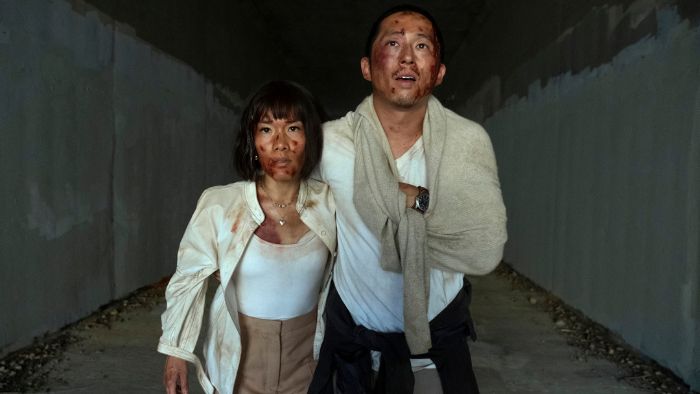A24 has garnered praise for its release of titles like “Everything Everywhere All at Once” and “Minari.” While audiences await what’s next on their film slate, this year, they pivoted into bringing in television series that steadily release on streaming platforms. With their partnership with Netflix, A24 introduced audiences to the chaotic world of “BEEF.” In what should have been another case of road rage, two strangers go to extreme lengths to ruin one another’s lives, consequently triggering events that will leave both of them and their loved ones, broken.
“BEEF,” which premiered in April, is loosely based off an incident that happened to the show’s creator and showrunner, Lee Sung Jin. In Sung Jin’s account, someone blew up at him while he was driving and he impulsively decided to tail this person. “I didn’t really have a set plan, I just wanted him to feel fear,” Sung Jin says in a press release for the show. “I wanted to let him know that it’s not okay to do that to people.” While Sung Jin’s confrontation ended with no one in danger, the same cannot be said in “BEEF.”
Translating his experience into a script, the series follows Danny Cho (Steven Yeun), a down-on-his-luck contractor, who goes head-to-head with self-made entrepreneur Amy Lau (Ali Wong), who is dealing with her own personal breakdown, all the while trying to sell her plant business KoyoHaus. After a violent encounter in a parking lot, their altercation leads to a car chase between the two, turning them into adversaries, and enacting multiple acts of torment upon each other. From defecating one’s home to almost setting a child on fire, neither side is satisfied with the agony they’ve caused, leading both individuals to slowly seep into each other’s lives.
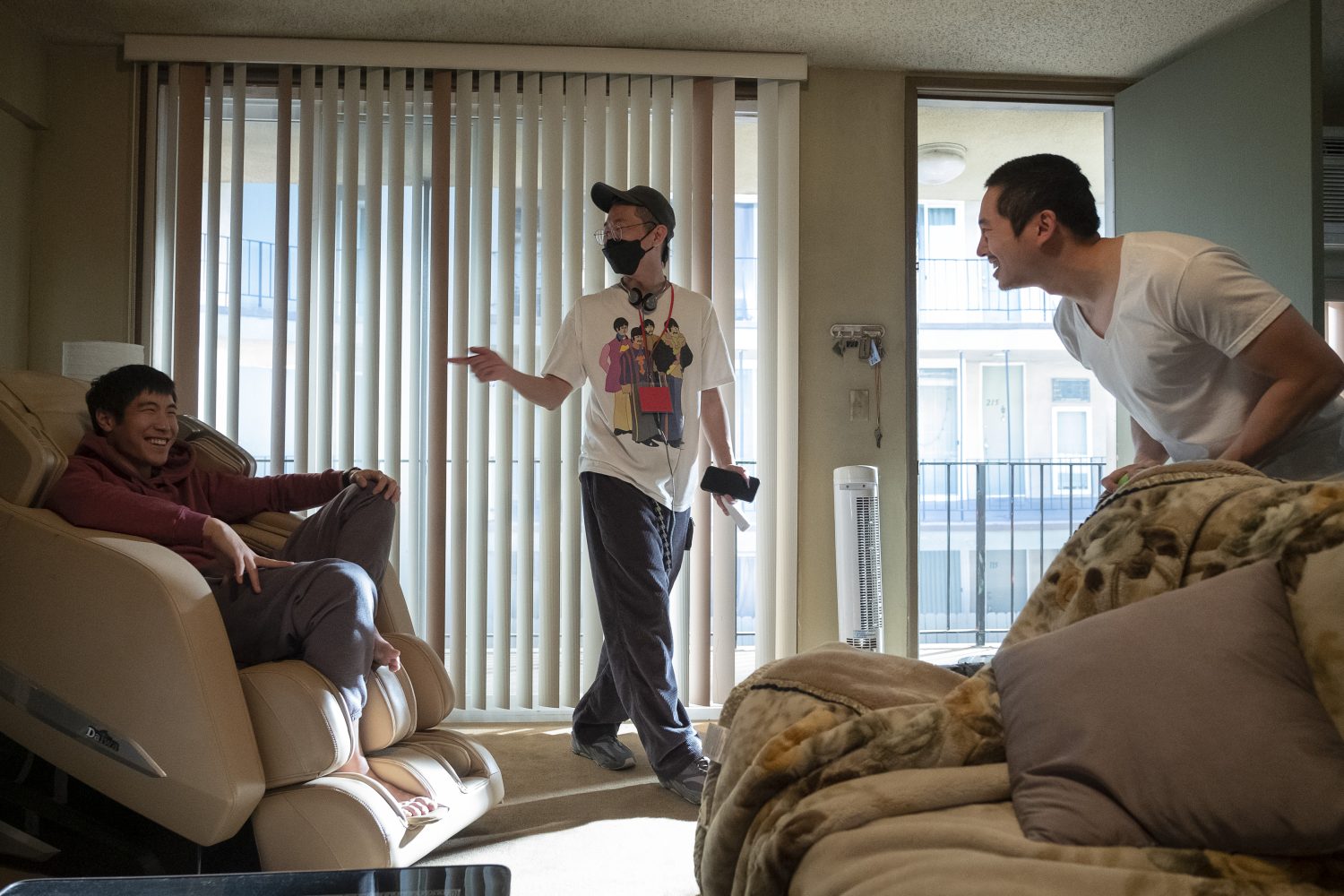
The two characters’ journey into disarray is only made possible by both Yeun and Wong’s multifaceted performances. While one could argue that the show is best when Danny and Amy are together onscreen, individually, Yeun and Wong fully immerse themselves into their roles.
Yeun’s acting chops are fully put on display, bringing Danny’s can’t-win nature to life, but also portraying a deep understanding of that no matter what situation Danny finds himself in, the biggest foil to his plans is himself. “Honestly, I relate to both of them a lot,” he says during an interview with Character Media. “It was fun exploring to what degree we were gonna turn it up and down.”
Wong, most notable for her raunchy stand-up and “Always be My Maybe,” showcases her acting range as Amy, delivering her most dramatic performance to date. “It’s definitely a big departure from what I’ve done in the past,” Wong states in their press release. “This show provides an opportunity for me to talk about and express all the things that I haven’t been able to say on stage in my standup.” As more of Amy’s business deals become more chaotic, she gains a sense of purpose and admittedly, a sense of joy, when she crosses paths with Danny. Despite both characters being at significantly different points in their lives, Lee does an accurate job portraying the one thing they have in common: their breaking points.
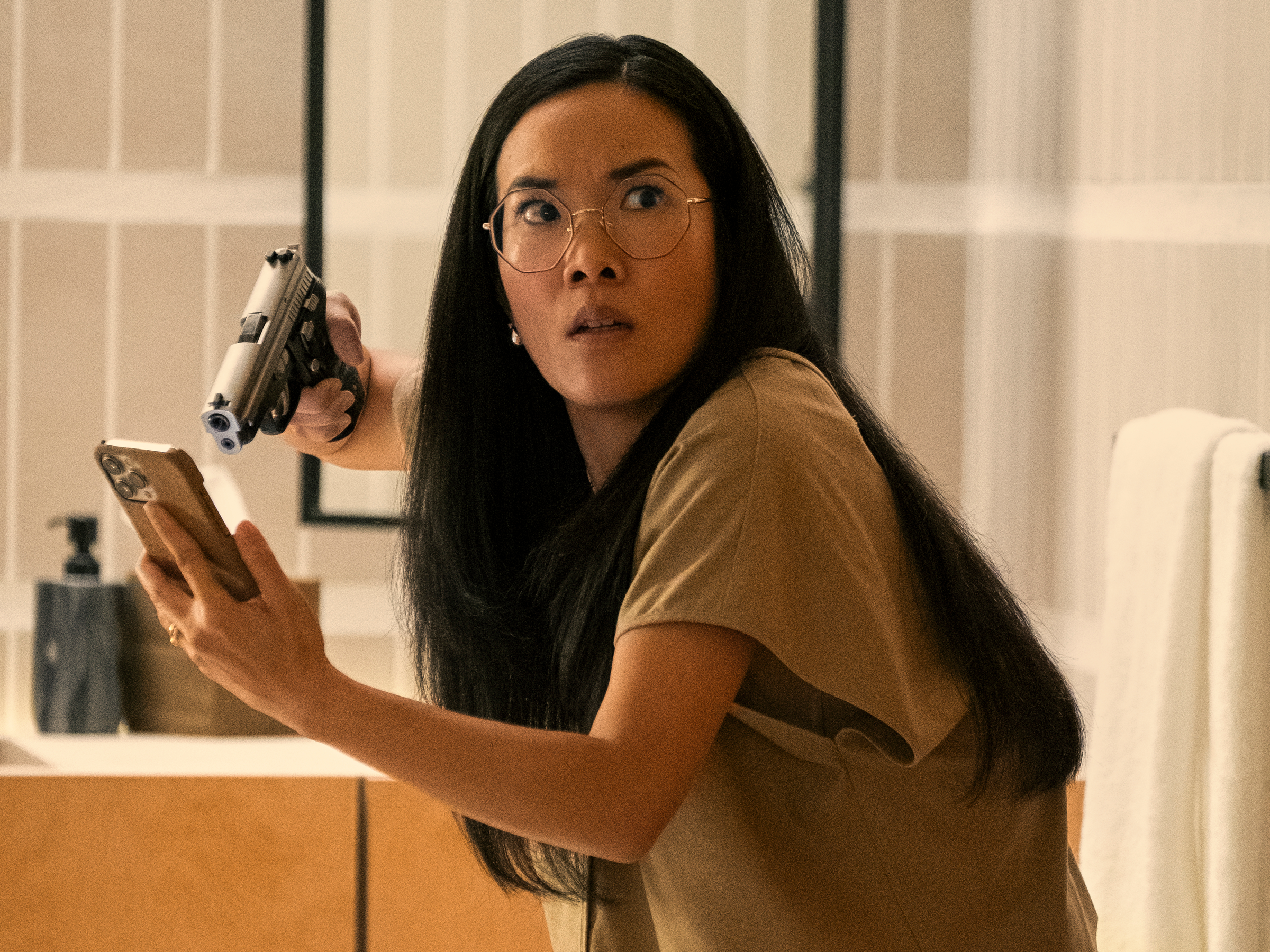
Ali Wong as Amy in episode 102 of Beef. Cr. Andrew Cooper/Netflix © 2023 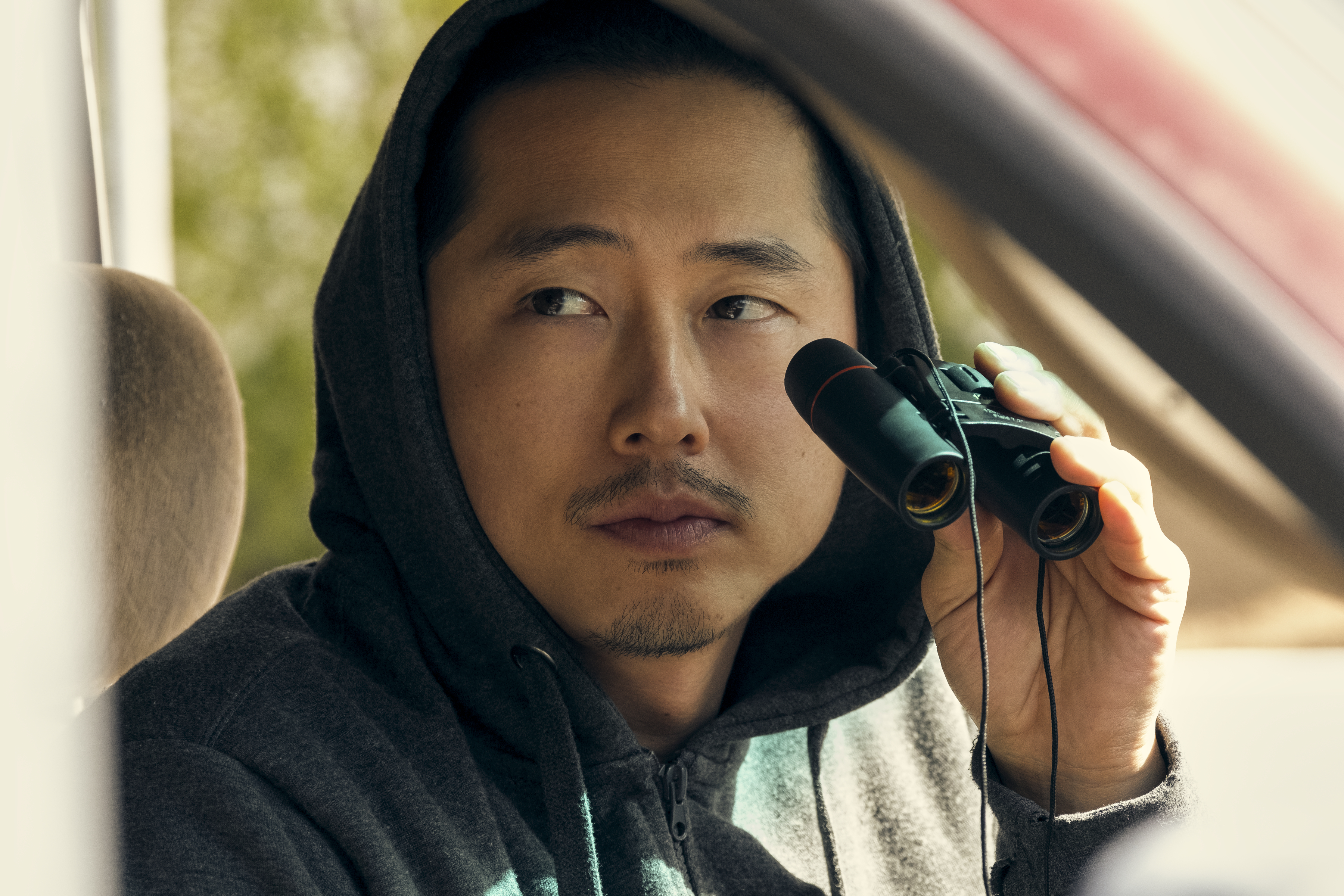
Steven Yeun as Danny in episode 103 of Beef. Cr. Andrew Cooper/Netflix © 2023
As savage and entertaining “BEEF” is, it’s layered with physical, psychological and cultural affairs of events that are presented with crude honesty and grace. Even as the series touches on multiple societal topics and issues like the contrast between class, Eastern and Western cultural differences and generational traumas, it presents them as guides to propel the plot and broaden the development of each character and their psyche.
Instances of these moments reveal themselves when the series takes an “if you know, you know” approach to some of its cultural details. The most significant example is how mental-health is represented among Asian Americans. Amy’s concern that she’s sacrificed too much for her accomplishments and Danny’s frustration that his efforts have yielded him nothing lead them to the same place – a profound self-doubt that leaves them in existential terror of their true selves emerging into view.
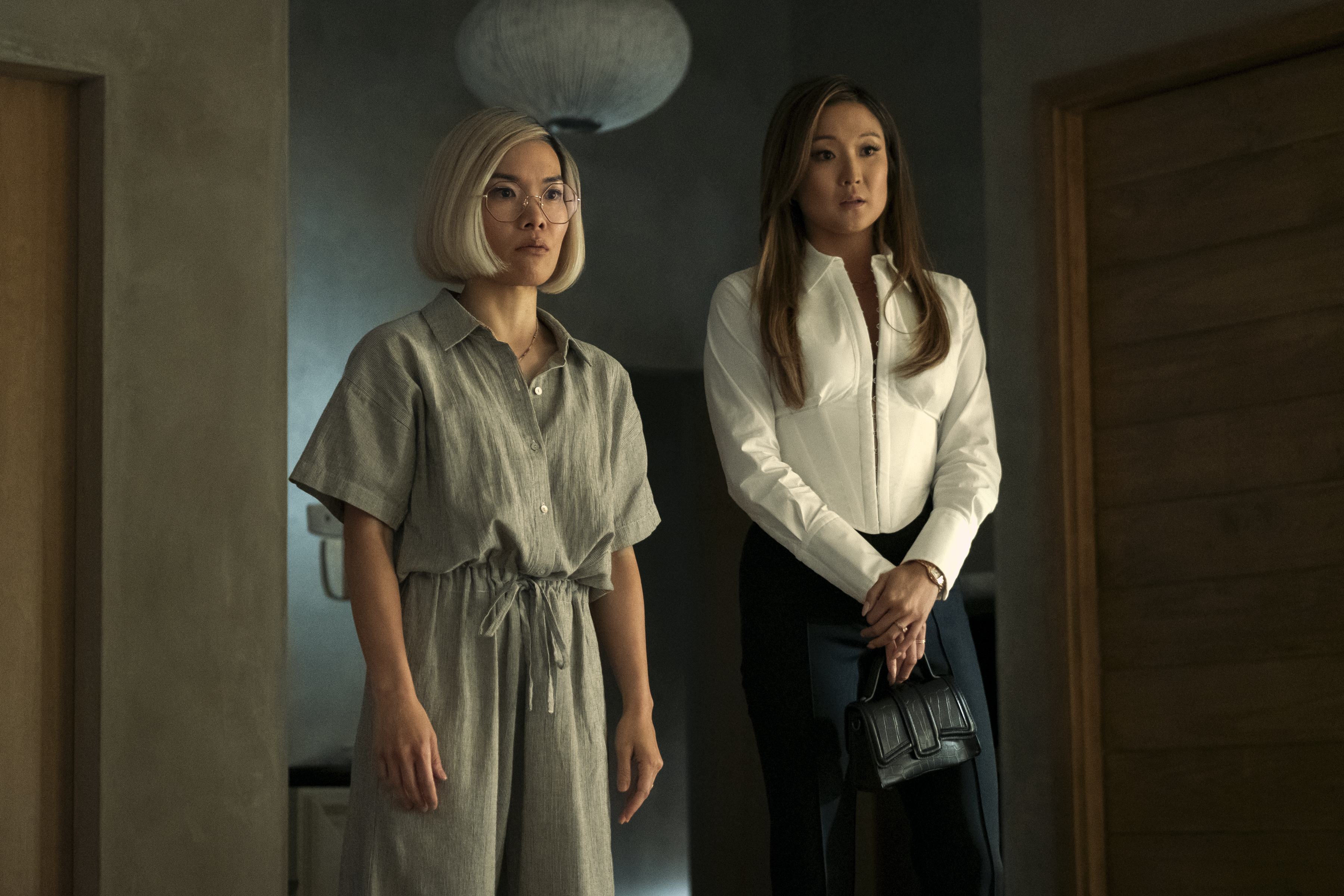
Beef. Ali Wong as Amy, Ashley Park as Naomi in episode 106 of Beef. Cr. Andrew Cooper/Netflix © 2023 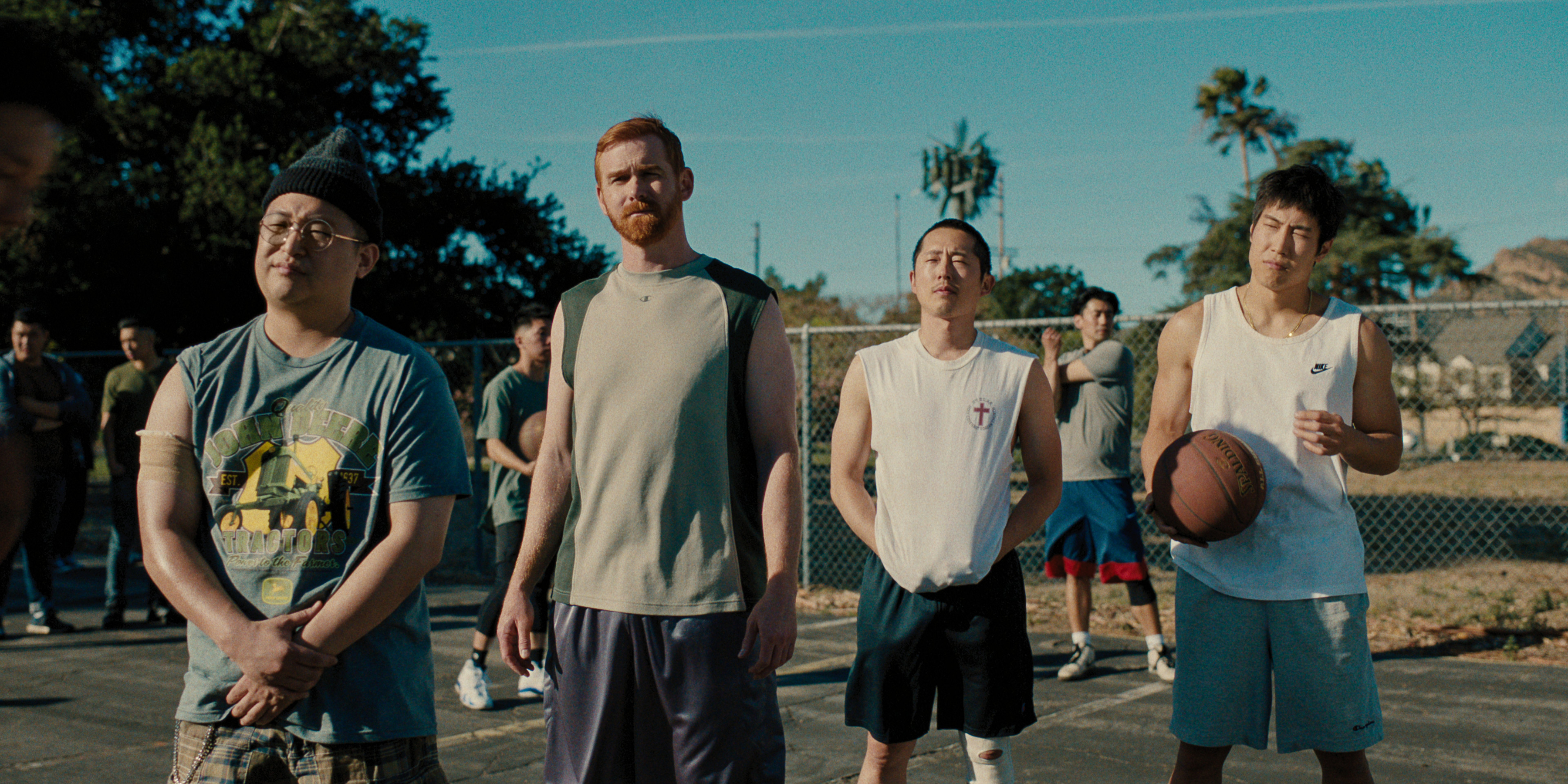
Beef. (L to R) Rekstizzy as Bobby, Andrew Santino as Michael, Steven Yeun as Danny, Young Mazino as Paul in episode 106 of Beef. Cr. Courtesy of Netflix © 2023 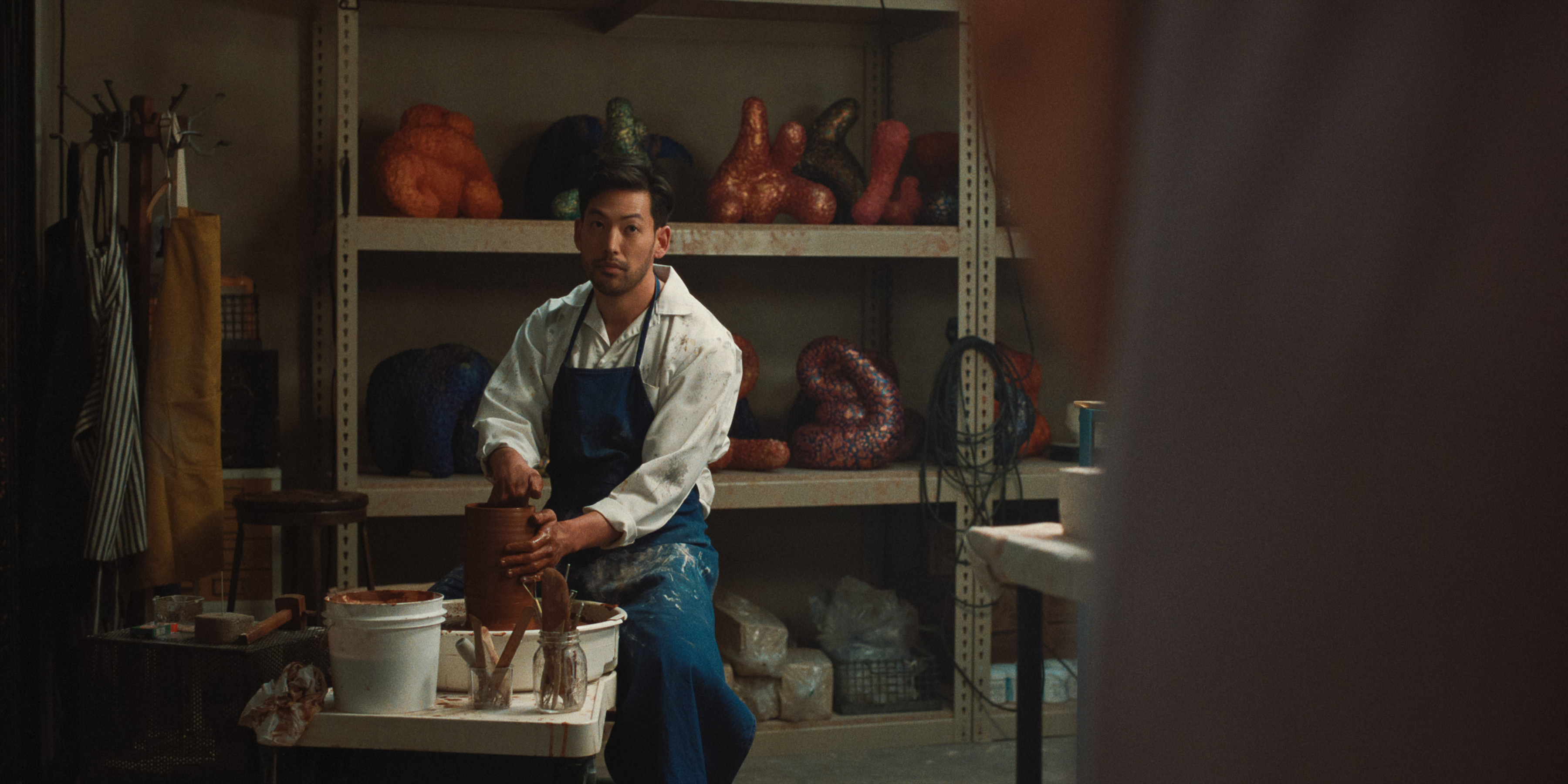
Beef. Joseph Lee as George in episode 102 of Beef. Cr. Courtesy of Netflix © 2023
As much as audiences enjoy watching Amy and Danny verbally (and literally) spar, “BEEF’s” supporting cast also plays a pivotal role in their game of psychological warfare. Young Mazino plays Paul, Danny’s cryptocurrency-obsessed younger brother, struggling to distant himself from Danny’s shadow and become his own man. “I resonated with Paul’s character because he also is pressed up against a ceiling of his own,” Mazino says on how he connected with his character in an interview with Character Media. “The culture and backstory as a whole, I can relate to heavily.” Finding himself having an affair with Amy, Paul soon finds himself in the crossfire amidst her quarrel with Danny, adding to the madness onscreen.
On the opposite side, Joseph Lee plays George, Amy’s sculptor turned house husband, who in recent years, has had to put his career on pause to care for their daughter, June (Remy Holt). Graffiti artist David Choe also joins the cast as Danny and Paul’s intense and sketchy cousin Isaac, who runs an illegal export/import scheme and adds to Danny’s dilemmas. With a frantic cast of characters like this one, it’s hard to believe Danny and Amy have time to make each other’s lives miserable.
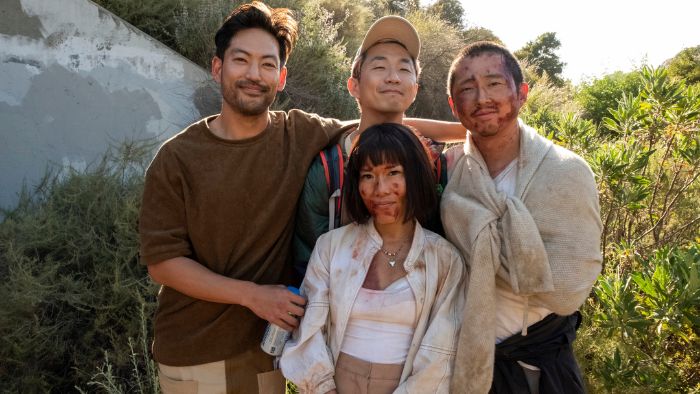
“I think Sonny’s (Lee Sung Jin’s nickname) done a great job in developing our characters to serve somewhat of a counterbalance to Amy and Danny’s characters,” says Joseph Lee, on how George and Paul cater to serving as the needle that shifts the two leads’ conflicts back and forth. With George hopelessly trying to follow in his artist father’s footsteps and Paul constantly being sheltered by his older brother, these concerns remain hovering over Danny and Amy and remain unanswered until the very last minute.
Upon the show’s release, “BEEF” earned a spot on Netflix’s “Top 10 TV Shows Today,” garnering massive success and receiving positive feedback from its viewers. The acclaim of the series continued as Sung Jin and the cast have earned a total of nine Emmy nominations for their contributions to the show, including “Outstanding Limited or Anthology Series or Movie.” From the cast, Yeun and Wong each earned an Emmy nod for their lead roles, as well as Lee and Mazino earning their first nominations for “Supporting Actor in a Limited or Anthology Series or Movie.”
“BEEF” is a type of rare show that honors the differences in class, ethnicity, and personality that make each of its characters unique, rather than flattening them into some idealized exercise to promote positive representation. Sung Jin states in an interview with The Ringer that he never intended to have a message come across to the audience, but more so to invoke a feeling. As Amy lies beside Danny in their hospital room, a sense of humanity seems to be restored as they sit in silence for the first time since crossing paths, turning their resentfulness from that day in the parking lot into a sense of restfulness.
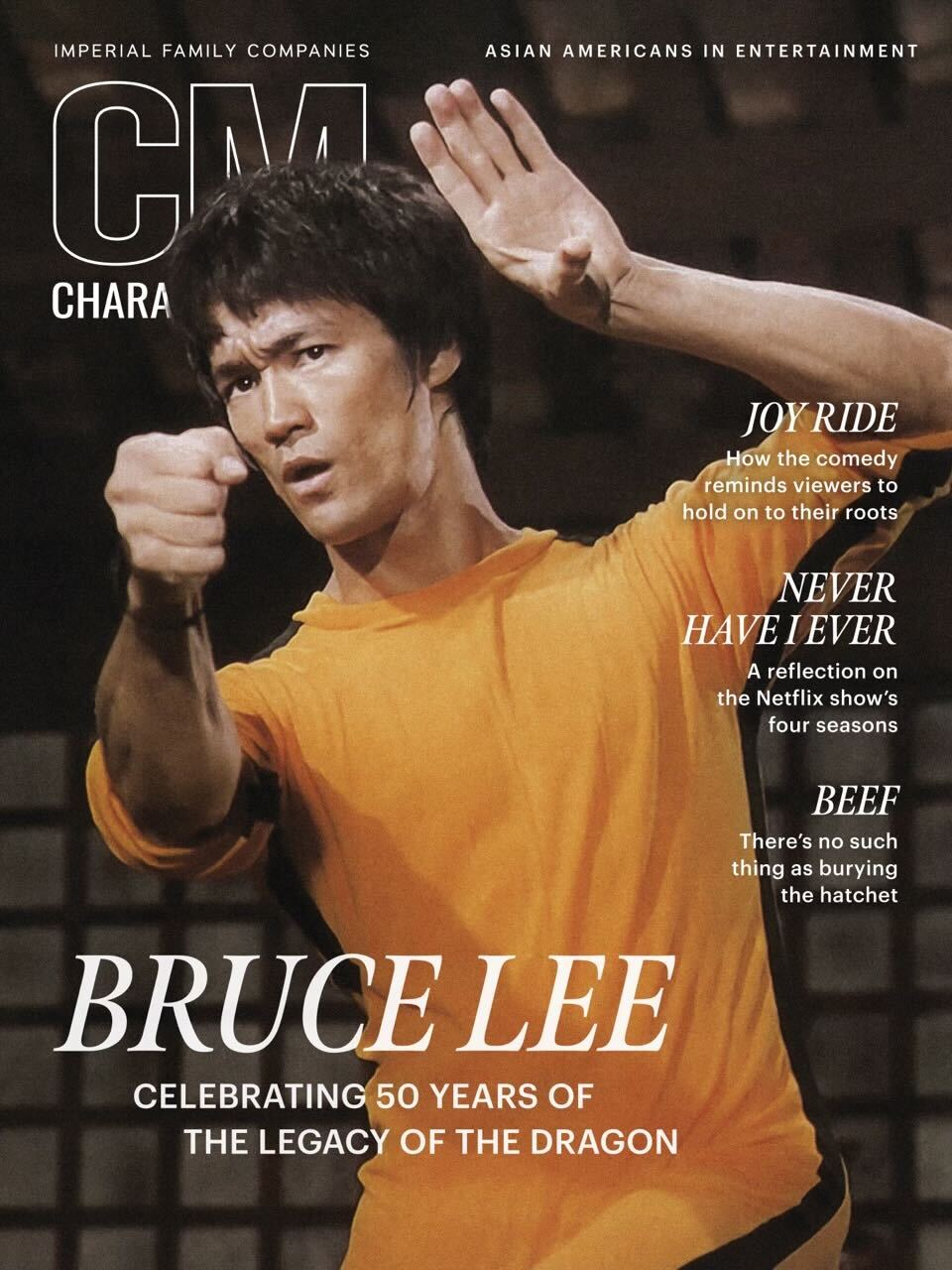
This article appeared in Character Media’s Annual 2023 Issue.
Read our full e-magazine here.

